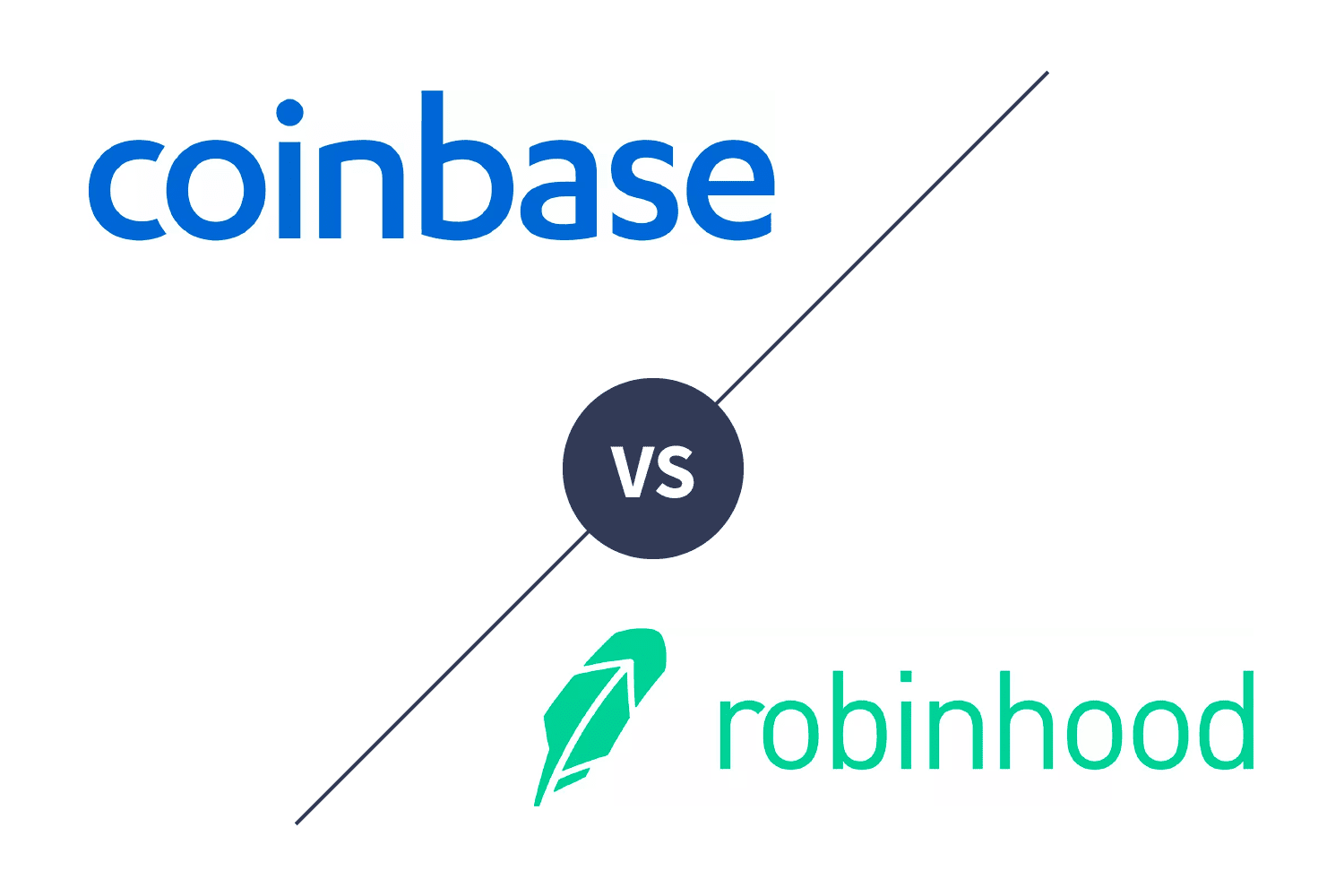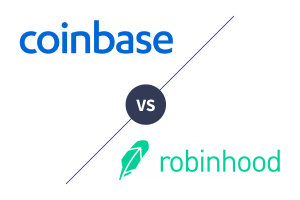Join Our Telegram channel to stay up to date on breaking news coverage
The crypto market is known to be psychological. With the US Securities Exchange Commission (SEC) on Coinbase’s neck over the past few months, the exchange has been losing its share in retail crypto trading reportedly to Robinhood.
Coinbase vs. Robinhood
Coinbase accounted for 65% of retail cryptocurrency trading volume during the last three quarters on the two exchanges, while Robinhood accounted for the remaining 35%.
However, Coinbase has been losing its market shares over the past month suffering a total of a 5.4% drop. The process was further accelerated after the SEC claimed last week that the crypto exchange has been operating as an unregistered securities exchange. In contrast, over the same time period, Robinhood has seen a 14% increase in shares.
According to an analysis by Dan Dolev, a managing director at Mizuho Securities, the trading platform has slowly been gaining dominance over the cryptocurrency exchange over the past several months. This is despite Robinhood stock gains being more recent in comparison to Coinbase shares loss.
“There is no perfect explanation for potential share losses aside from worries about regulatory pressures given SEC actions against crypto, or the increase in small-ticket item retail trading fees at Coinbase,” Dolev wrote to Bloomberg.
He explained that Coinbase typically collects fees on transactions of 168 basis points, or 1.68 percentage points. This suggests that, based on its volume for the first quarter, Coinbase would have made $117 million in total transaction income in April.

Instead, Coinbase revealed in its shareholder’s letter that it made $110 million in the same month. That implies that the crypto exchange likely lost some market share as a result of its rising take rate or fee. For context, Coinbase’s fees increased from 154 points in the fourth quarter of 2022 and 133 points in the third quarter to 168 basis points in the first quarter.
On the other hand, Robinhood, which rose to prominence for its attractiveness to at-home stock dealers, has no fees and has not altered its spread.
“We believe that COIN may be losing share to HOOD in retail trading,” Dolev wrote. “Retail trading peer HOOD, on the other hand, didn’t increase spreads, which likely attracted some customers to its platform,” he added.
Even with the small win, all is not rosy in Robinhood. The volume of cryptocurrency traded on the platform in May fell 68% from the previous month and 43% from the previous year. The daily average trading revenue for the platform also decreased in May.
In addition, Robinhood had to delist three tokens, ADA by Cardano, MATIC by Polygon, and SOL by Solana, which the SEC had recently claimed to be securities in cases against Coinbase and Binance.
US Crypto Turmoil
Aside from the market share losses, Coinbase is fighting bigger battles in the United States, its main revenue generator. The crypto exchange is facing a lawsuit that it probably saw coming as it ventured into the American market.
According to the SEC, the exchange failed to register as a broker, an exchange, or a clearing firm and has additionally been operating with unregistered securities. This has been a constant problem for Gary Gensler, the chairman of the SEC, who has been disapproving of the idea of industry players offering one-stop services which often create conflicts of interest with clients.
In short though, the SEC is alleging that Binance, like Trex, Beaxy, Coinbase, and every other crypto trading platform is essentially operating an unregistered exchange, but also provides clearing services and acts as a BD for its customers, and hasn’t registered as any of those.
— Collins Belton (@collins_belton) June 5, 2023
The regulator claimed that Coinbase’s staking program, which enables users to lock up their currency in exchange for a portion of the benefits provided by different blockchains, also breaches securities regulations.
Nonetheless, the legal battles are not personal to Coinbase only, a day earlier, Binance was also caught in the SEC net for similar allegations. These constant crackdowns in the American market have made it difficult for crypto firms to operate and thrive.
This legal war is very vital to the industry seeing as it determines the fate of all the other exchanges and firms operating in a similar capacity. In the event, the SEC emerges victorious, the rest of the firms will be up for lawsuits and other actions taken against the two crypto giants.
Related articles
- Dubai’s VARA Approves OKX ‘Preparatory’ License as Part of Exchange’s Expansion plans
- NFT Sales Drop 25% This Week Following SEC’s Crypto Crackdown – How Low Will NFTs Go?
- Impact of SEC Lawsuit: Binance Fires Staff, Coinbase Loses Market Share to Robinhood
Join Our Telegram channel to stay up to date on breaking news coverage


